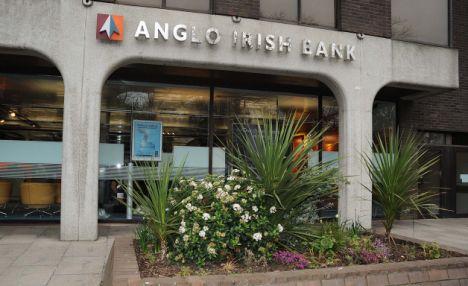Sean Quinn's Anglo gamble made us all losers

Anglo's attempts to keep its share price afloat in the wake of Seán Quinn's disastrous speculation were at best highly dubious, writes Vincent Browne
Seán Quinn said on Monday: "Our mistake was to place an overreliance on the Irish banking system and the many predictions for continued sustained growth in the Irish economy from some of the country's leading financial services experts."
He seems to be in denial.
Three years ago Forbes magazine named him as one of the 200 richest people in the world. He certainly was then regarded as the richest person in Ireland. In the three years since he blew it, and helped to blow the Irish economy along with it. And it was no mistake that did it, neither was it reliance on the Irish banking system or on leading financial experts.
Towards the end of 2005 Quinn started to gamble on the shares of Anglo Irish Bank through financial devices known as contracts for difference – essentially bets on the movement of share price of Anglo.
He bet €20 million on 8.9 million Anglo shares, which were then valued at €11.32 per share, a total of over €100 million. The share price went up and the following March Quinn did the same again. By the end of 2006 the value of shares on which he had bets was €653 million. He did not cash in on his winnings, instead, in 2007, he bet on a further €790 million of Anglo shares. Had he cashed in his bets in April 2007 he would have made a profit of €200 million. But then things started to go wrong.
Financiers started to short sell Anglo stocks, which depressed the share price, because of anxieties about Anglo's exposure to a brittle property market. Within a few months the share price had decreased by a third and instead of cutting his losses Quinn started to bet against the financiers and poured more of the substantial wealth to which he had access into more contracts for difference for shares then valued at €304 million.
By September 2007 he had bets on 25 per cent of all Anglo's shares – in other words he could be called upon to pay up for these shares, which were now worth substantially less than the price he had bet on.
There was a meeting in Navan in September 2007 with Seán FitzPatrick and David Drumm, when, for the first time, the latter two realised that Quinn held the fate of the bank in his hands. They discussed how he might dispose of his liabilities but immediately after the meeting Quinn gambled further on €111 million more Anglo shares, bringing his shareholding to 28.5 per cent in Anglo, were he to cash in his contracts for difference. It was a desperate attempt to bet against the market and it failed. And in funding this gambling mania, he took money from Quinn Direct and other companies within the group he controlled.
Because the price of the shares were by then far below the price on which he had gambled, he was close to ruination himself, but, more than that, he was about to precipitate a further crisis in Anglo. If 28.5 per cent of Anglo shares were to come on the market at once it would collapse the declining share price and collapse the credibility of the bank. So a scheme was devised to avoid that and, eventually, it involved Anglo getting its 10 richest customers to purchase 1 per cent of Anglo's shares each, with funds lent to them by Anglo.
The remaining 18 per cent was to be dispersed widely among the Quinn family, wide enough not to require notification to the stock exchange that any one person had a notifiable shareholding. This was organised by Anglo executives with the assistance of Morgan Stanley, a global financial services corporation.
What was done then – and finalised in June 2008 – was made known to the then financial regulator, Patrick Neary, and to the Central Bank. It seems to me there is a big problem with this, for what was done essentially was that a few insiders managed to stabilise the Anglo share price in the early summer of 2008 by a secret arrangement that disguised information that would have collapsed the share price had such information been made public.
How could it be that those who subsequently bought shares in Anglo Irish Bank through the stock exchange, not knowing that the shares were worth a fraction of the price they were paying, were not defrauded? How is it that, at least prima facie, a criminal offence was not committed by some of those who arranged this and on the part of those who knowingly aided and abetted them or gave them a nod of approval?
How is it that there has been no conclusion to the inquiries that began some years ago into these events?
This column also appears in today's Irish Times
